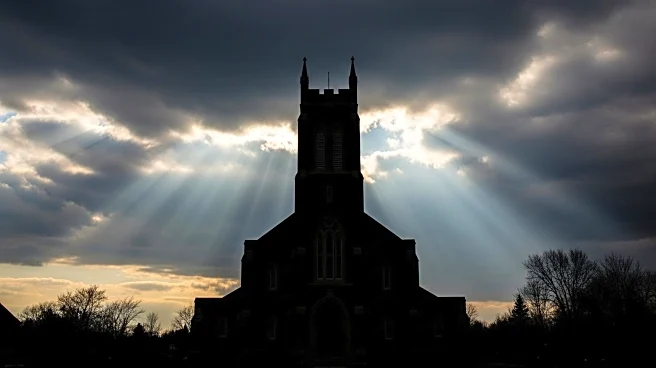What's Happening?
In the late 1980s, Viraj Mendis, a Sri Lankan national, sought refuge in a Manchester church to avoid deportation back to his war-torn country. Mendis, who had overstayed his visa, feared persecution due to his support for the Tamil cause during Sri Lanka's civil war. The Church of the Ascension in Hulme provided sanctuary, invoking the ancient right of sanctuary, despite it lacking legal force. This act of defiance led to a prolonged standoff with UK authorities, culminating in a police raid to remove Mendis after 760 days. The case drew international attention and sparked debates on asylum policies and human rights.
Why It's Important?
The Mendis case highlights the complexities and moral dilemmas surrounding immigration and asylum policies. It underscores the tension between legal frameworks and humanitarian considerations, particularly in cases involving potential persecution. The incident also illustrates the role of religious institutions in social justice movements and their capacity to challenge governmental decisions. The widespread media coverage and public support for Mendis reflect ongoing global debates about the rights of refugees and the responsibilities of host countries. This case remains a poignant example of the challenges faced by asylum seekers and the communities that support them.
Beyond the Headlines
The Mendis case raises questions about the ethical responsibilities of religious institutions in political matters and the potential risks they face when opposing government actions. It also highlights the enduring impact of civil conflicts on diaspora communities and the long-term advocacy required to protect vulnerable individuals. The story of Mendis continues to resonate, serving as a reminder of the power of collective action and the importance of safeguarding human rights.









